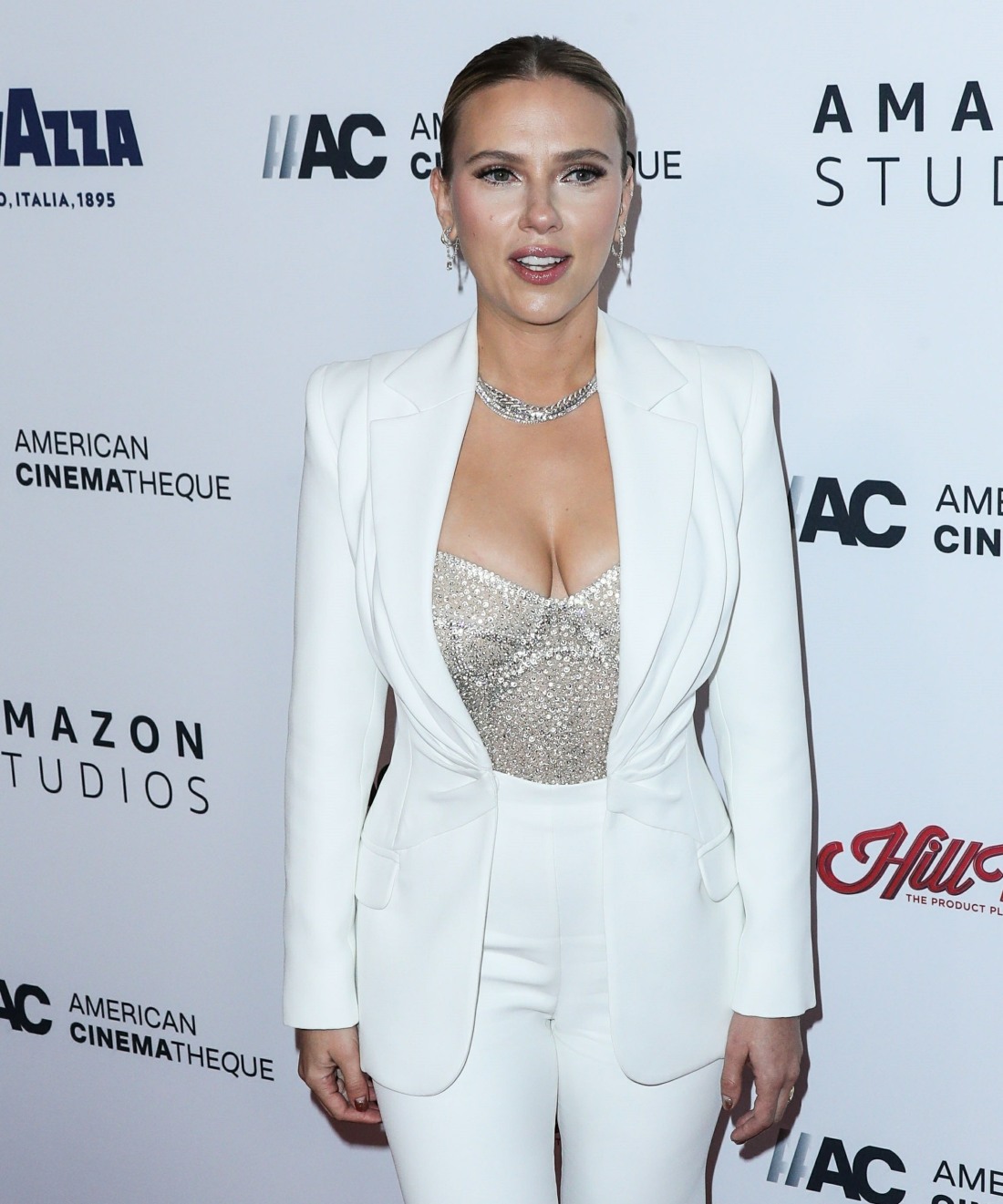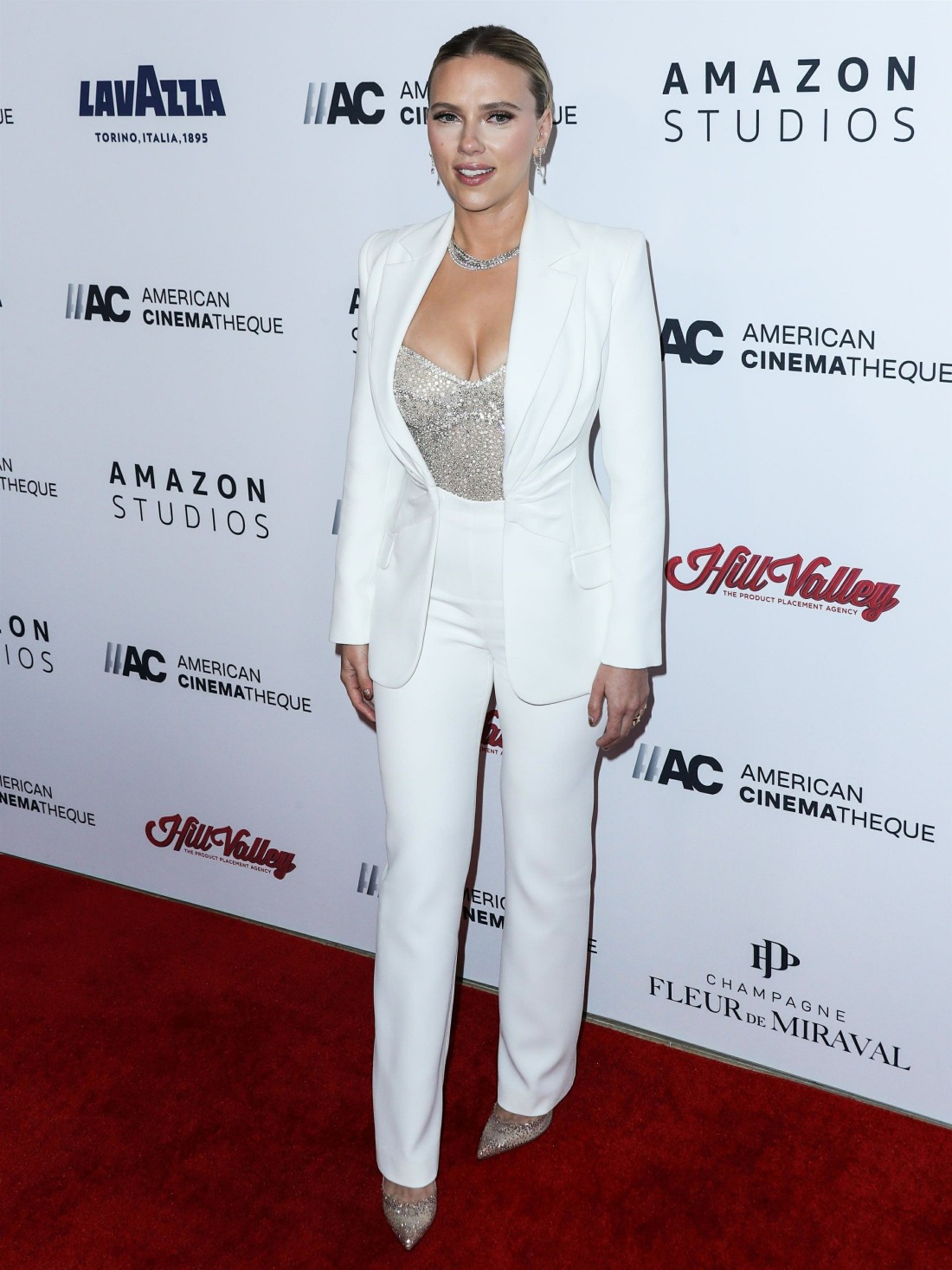Scarlett Johansson: I was objectified at a young age, people thought I was older

Scarlett Johansson was a guest on Dax Shepard’s Armchair Expert podcast this week. I’m consistently surprised that Dax draws in all of these A-listers, especially given that they usually talk about really private stuff. This was the 500th episode of Armchair Expert, btw. Anyway, Scarlett opened up about her early days in Hollywood and how she was sexualized by the industry and the media at a very young age. I remember when she was transitioning from “child actor” to an adult actress with real lead roles – think about how Ghost World came out in 2001, then Lost in Translation came out two years later. That space of time was when she was 16-19, and there was so much energy around her, her looks and her mature/precocious demeanor. Some quotes:
She was “hypersexualized” at a young age: “I kind of became objectified and pigeonholed in this way where I felt like I wasn’t getting offers for work for things that I wanted to do. I remember thinking to myself, ‘I think people think I’m 40 years old.’ It somehow stopped being something that was desirable and something that I was fighting against.”
Working on Lost in Translation when she was 17: “Because I think everybody thought I was older and that I’d been [acting] for a long time, I got kind of pigeonholed into this weird hypersexualized thing. I felt like [my career] was over. It was like, ‘That’s the kind of career you have, these are the roles you’ve played.’ And I was like, ‘This is it?’ The runway is not long on that. So it was scary at that time. In a weird way, I was like, ‘Is this it?’ I attributed a lot of that to the fact that people thought I was much, much older than I was.”
She thinks the landscape has changed: “Now, I see younger actors that are in their 20s. It feels like they’re allowed to be all these different things. It’s another time, too. We’re not even allowed to really pigeonhole other actors anymore, thankfully, right? People are much more dynamic.”
The patriarchy: “We live in a patriarchy and I feel like there’s a fundamental reality of the woman’s condition that will always, even if those 600 men are not actively aggressive necessarily as much as they would have been a minute ago, it’s still fundamentally there. It’s so baked into our culture and society. It’s hard for me to imagine that ever being not an element.”
The nature of progress: “I’ve come to this realization that it’s important to understand progress and change when it’s really meaningful — it takes two steps forward and two steps back, and then it gets better and then it gets worse. It’s not finite. I think if you don’t leave room for people to figure it out, then the actual progressive change doesn’t really happen.”
[From ET]
It’s true, people treated her like she was a lot older than what she was at the time, when she was a teenager. Some of it was her deep voice and the fact that she had big boobs, I hate to say. When you develop a big bust early in your life, you learn quickly that people treat you differently. Even now, I constantly think Scarlett is older than she is – she’s not even 40 years old! It feels like she’s either 28 or 50 and nothing in between. As for the patriarchy and all of that… it is baked into society, and dismantling patriarchy is going to take a huge effort. She’s also right about the nature of progress, that it’s not constant forward movement. We take it for granted that “the arc of the moral universe is long, but it bends toward justice.” We actually have to go out and fight for it and work towards it.
Photos courtesy of Backgrid.
Source: Read Full Article

